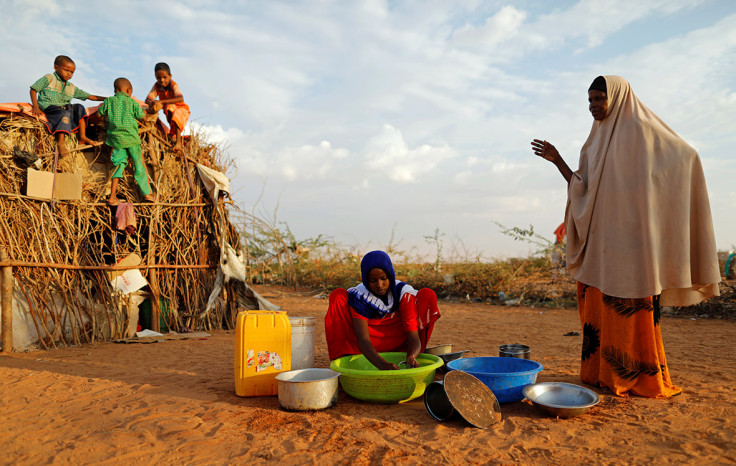Cholera spreading in drought-hit Somalia as WHO projects 50,000 cases by summer
Somalia already faces famine, described as the "largest humanitarian crisis in history of the UN".

The World Health Organization (WHO) has warned that there could by a cholera and diarrhoea epidemic in famine-threatened Somalia by the summer, according to Reuters.
Somalia is already facing the "largest humanitarian crisis in history of the United Nations", as millions are at risk of starvation and famine across the Horn of Africa, Nigeria and Yemen, due to lack of rain and prolonged insecurity.
More than 25,424 people in Somalia have already been infected by cholera or acute watery diarrhoea since the start of the year, the WHO said before warning the deadly epidemic could double in the coming months. At least 524 deaths from cholera or diarrhoea have been recorded so far.
"These numbers are projected to increase to 50,000 by summer," WHO spokesman Tarik Jasarevic told Reuters.
Endemic in Somalia, cholera is a diarrhoeal disease spread by contaminated food or water that can kill within hours if left untreated.
Due to drought and insecurity, some 500,000 Somalis have been internally displaced, many in search of water, which supplies play a very important role in how the disease is spread.
Death rates among Somalis infected with cholera now reach 14.1% in Middle Juba and 5.1% in Bakool, according to United Nations (UN) spokesman Jens Laerke.
The centre of cholera outbreak is Baidoa, a district in the southern Bay region of Somalia, David Akopyan, UN Development Programme (UNDP) deputy country director for Somalia, said from the capital, Mogadishu.
More than half the population – 6.2 million people – need humanitarian assistance and protection, including 2.9 million, who are at risk of famine and require immediate help "to save or sustain their lives". Close to one million children under the age of five will be "acutely malnourished" this year in the East African nation.
© Copyright IBTimes 2025. All rights reserved.






















